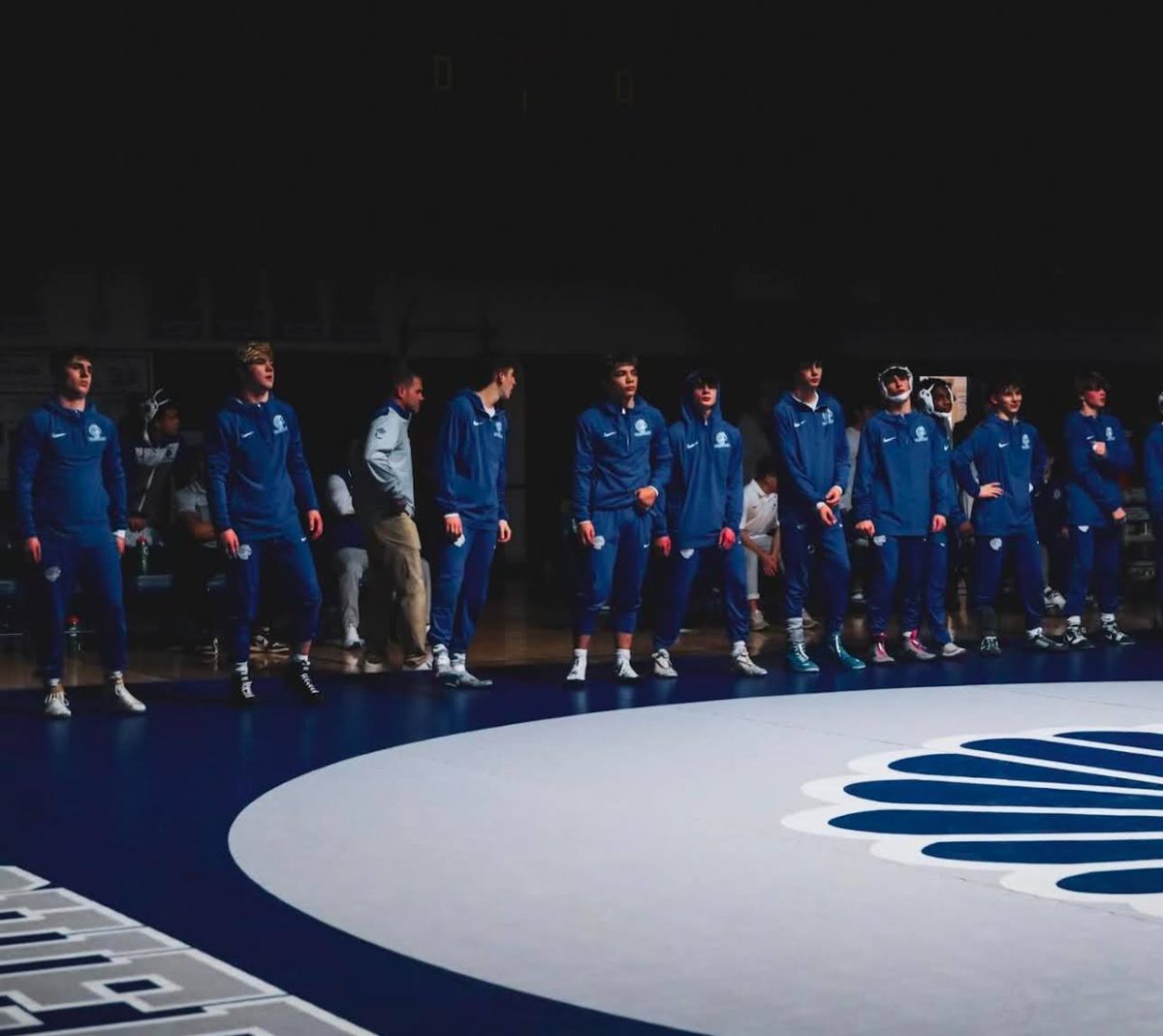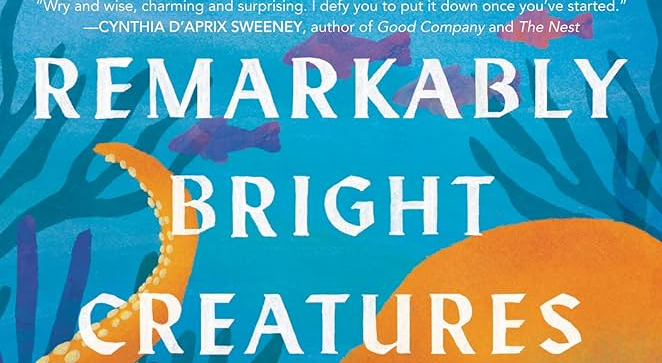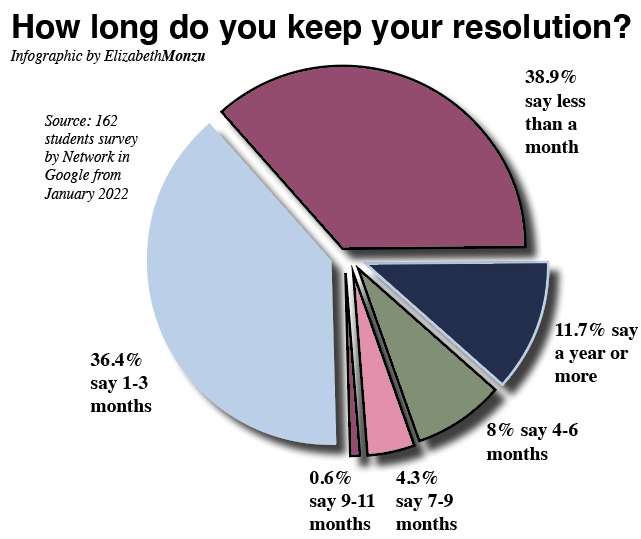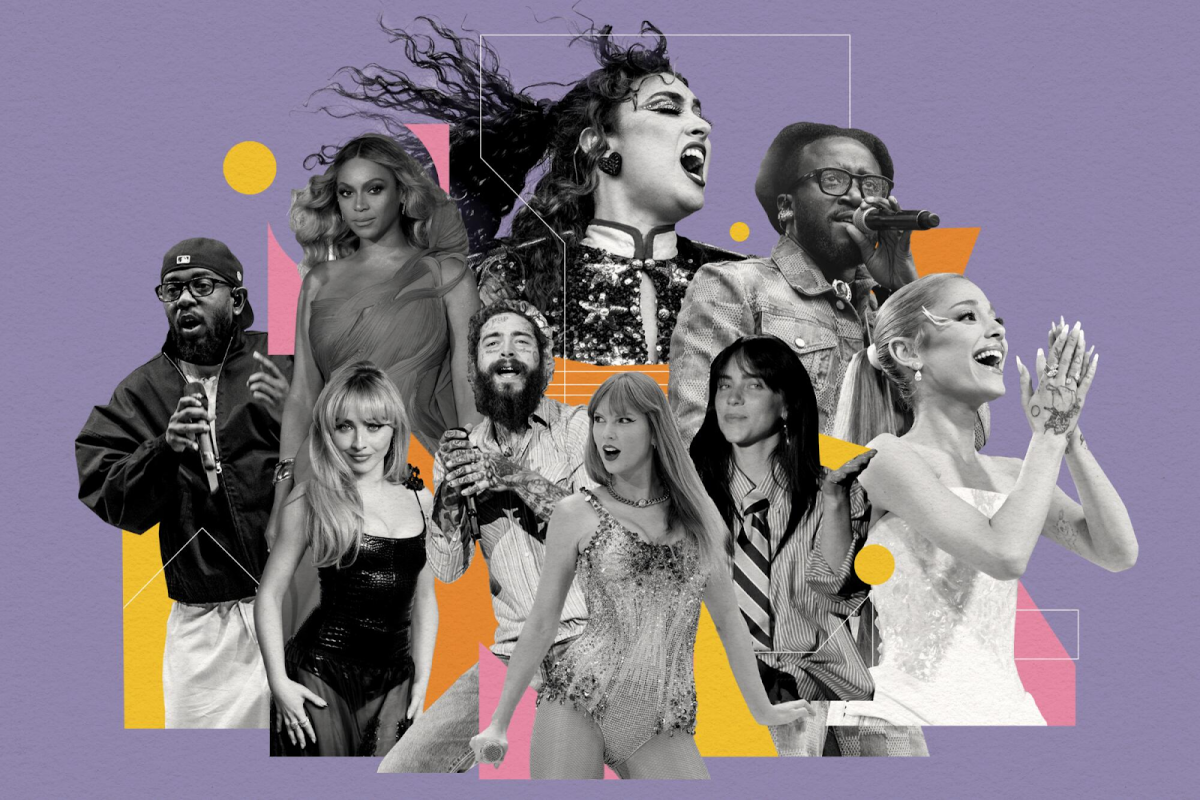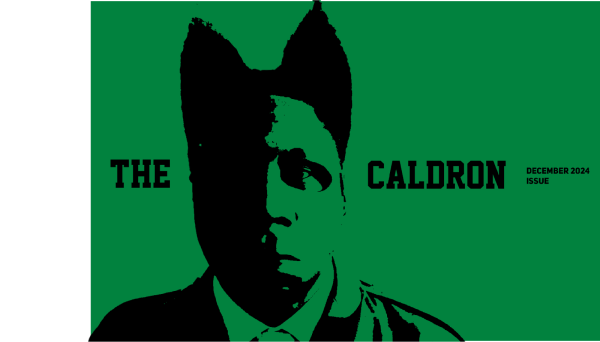
“Rap” is a music genre that attracts both avid listeners and vehement critics, and rarely anything in-between. This music often has an aggressive tone and typically conveys violent and immoral messages, which have become common rap stereotypes and made it highly controversial. For this reason, it is usually only enjoyed by listeners with a strong appreciation for this genre in particular. However, several immeasurably talented artists have managed to produce music that can both be identified as rap and appeal to almost any taste in music, one of the most notable of which being Tyler, the Creator.
Tyler, the Creator
Tyler Okonma, or “Tyler, the Creator,” is a music producer whose discography dates back to the late 2000’s. He began his career with the studio album, Bastard, which received criticism for the intensity and violent tone of its tracklist. This caused many listeners to identify the album as “horrorcore,” and it was only appreciated by those who could handle the harsh sound.
Since then, however, his style has evolved into what is now described as a combination of jazz, soul and R&B—which can be heard in his Grammy-award-winning albums, Flower Boy and Call me if you Get Lost—and he has received praise internationally for the distinct sound of his music and the unique artistic vision that is displayed in his productions. Tyler’s popularity has only continued to skyrocket with the massively successful release of his eighth and most recent album, Chromakopia, on October 28, 2024.
A fascinating aspect of Tyler’s most recent albums is their ability to captivate listeners regardless of their music interests; unlike his early “horrorcore” works, Chromakopia, for example, has found an audience in fans of virtually every genre—it has even enchanted people who actively avoid rap. As a result, the community for Tyler’s music consists of fans of a wide range of different personalities and demographics.
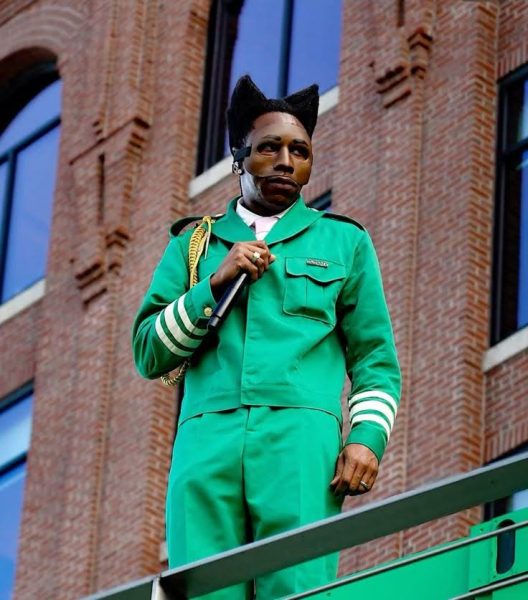
This is shown by the students at JCHS who appreciate Tyler’s music, such as Sophomore Jason Ruiz, on one hand, who primarily listens to “provocative hip-hop/rap,” and Freshman Lucy Sandor on the other, whose playlists consist of both “upbeat, groovy, dynamic” and “slow, soft, and quiet” tunes.
“I enjoy rap thoroughly,” Jason stated when asked for his stance on the genre. In contrast to the general understanding of rap music as shallow, he shared that “what pulls me in is it’s a beautiful form of expression…[it] manages to be listenable and enjoyable on [the] surface level and when you look even deeper it can be moving and heartfelt.” Jason went further on to state that “in some cases it allows people to tell truths and touch on morals they have by doing something they love.”
This could not be more accurate to Tyler, the Creator, and his artistic works. “Once he produced his fifth studio album [Flower Boy] he began to take his music to a level beyond,” Jason explains, as in response to the reception of his “horrorcore” music, “he took these criticisms and he produced things that he loves in spite of the arbitrary criticism.” Rather than composing songs that glorify violence, drugs, and other forms of immorality, he brought “stories of love, heartbreak and even abandonment to light in a serious, beautiful way.”
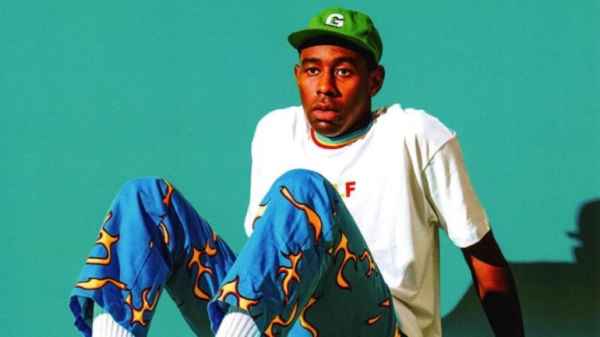
Another factor that has enabled him to foster such a diverse audience and stand out within the rap scene is “his distinct experimental style that mixes genres,” in the words of Lucy. “Tyler’s songs layer rap with backing vocals that add to the song’s complexity, and make them appealing to people who don’t listen to rap very often,” such as herself. Additionally, another defining characteristic of Tyler’s style is that he “merges genres within his songs that create a style that is very versatile,” which allows “every song in an album…[to fit] together, but individually…[be] unique in themselves.”
Tyler’s ability to surpass the limits of conventional rap has led to the creation of pieces like his revered new release, “Like Him,” which resonated with Lucy. She describes the song as “quiet,” and “very reminiscent of a hip-hop ballad.” Lucy and countless other listeners find themselves enthralled with “Like Him” for its unique method of telling a captivating story, as “it asks repetitive questions, yet you can see the story progress and feel Tyler’s vulnerability as he grapples with his relationship with his father.”
Tyler uses his music as a means of sharing deeply touching, personal and relatable experiences with his listeners, which makes it so applicable to individuals of almost any background. He reels people in with his immense transparency and profound ability to transform his trauma and hardships into a powerful narrative. It is then told through his genre-fusing tracks, and all of this together ultimately makes for a uniquely moving experience to which practically no other modern musician can compare.
For this reason, many people have argued that Tyler transcends the genre of rap—despite the clear inspiration that he takes from it in albums as recent as Chromakopia—and that recognizing him as a “rapper” is inaccurate (Tyler himself even wants to be disassociated from the term).
When asked whether they would identify Tyler as a rap artist or if they think that he deserves a category of his own, both Jason and Lucy agreed that “Tyler’s a mix of both.” Lucy articulated that “he’s not just a rap artist, he’s had many albums that are representative of his own style,” but followed up by explaining that this does not change the fact that “Tyler has made rap albums before, and some of his songs are now reminiscent of old-school style rap.”
Jason shares this position since he also believes that “Tyler is a rap artist but like previously mentioned he is SO much more.” Jason expressed that he “wouldn’t say [Tyler belongs in] a league of his own,” but finds that “he should most certainly be place[d] among the greats (Kendrick Lamar),” as “Tyler has always been an innovator,he’ll do something he finds interesting and he’ll do it just because he wants to.” He finished by eloquently stating that Tyler “doesn’t follow trends and he is in fact usually the one setting them.”
Overall, Tyler’s roots in and attachment to the rap genre cannot be denied, but neither can the fact that he has established himself as one of the most distinctive figures in recent pop culture history. He may be recognized as a rapper, but he is not limited to the boundaries of this term and constantly challenges them through his music.

Ultimately, Jason and Lucy give invaluable insights into what has enabled Tyler, the Creator to produce musical experiences that can be enjoyed by almost anyone. The remarkably personal nature of his lyrics and his genre-bending style have gripped listeners of an endless variety of personalities and appreciations in music around the world. This has enabled him to powerfully inspire millions of people, such as Jason, who shared that Tyler “makes me want to work harder,” and that he is reminded in hard times by Tyler’s story and music “that things could be worse and that I gotta smile through it you know.”
Jason shared that his favorite song of Tyler’s is “911/Mr. Lonely,” and Lucy was split between “Noid” and “Like Him.”
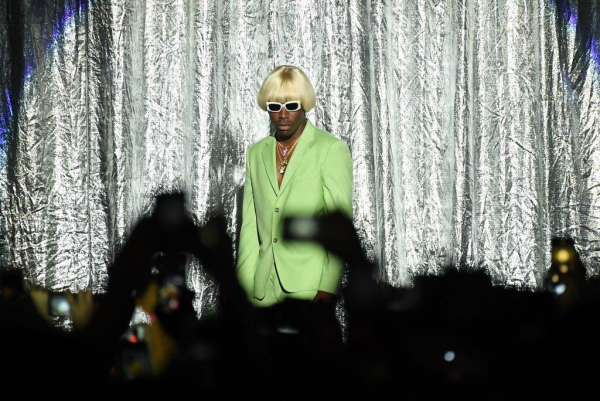
Works Cited
https://en.wikipedia.org/wiki/Tyler,_the_Creator







